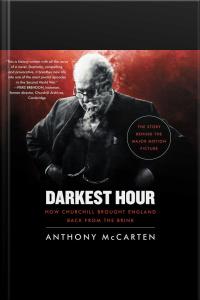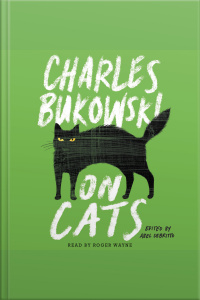Synopsis
A technical writing podcast about the latest trends and practices in the field of technical communication. Technical communication includes topics like technical writing (software help), information architecture, usability, API documentation, information design, web design, illustration, DITA, structured authoring, visual communication, and more. If youre a technical writer or interested in technical writing, this is the one of few podcasts in this niche. I also have a blog at http://idratherbewriting.com where the podcasts and other blog topics are published.
Episodes
-
Videocast: Micro content and Flare -- Conversation with Kate Schneider
21/03/2021 Duration: 31minIn this videocast, I chat with Kate Schneider about micro content and Flare. Kate shares micro content examples from her current documentation and explains the strategies she considers when creating micro content. She shows specifically how to leverage analytics in determining micro content topics.
-
The story behind Document360 -- podcast with founder Saravana Kumar
17/11/2020 Duration: 32minIn a previous post, I explored how Document360, a new cloud-based documentation platform, handles API documentation scenarios. This time, I decided to record a podcast with Saravana Kumar, founder of Document360, to get the behind-the-scenes story about how Document360 came about, what's driving their fast pace of development, and their roadmap for the future.
-
Playing a product design role as a content designer -- podcast with Jonathon Colman
24/08/2020 Duration: 46minIn this podcast, I chat with Jonathon Colman about an innovative work model they implemented at Intercom with content designers. In their experimental model, content designers were allocated to one project only, and they expanded their roles to include not only content design but product design as well. These content/product designers engaged on a deeper level to help products succeed.
-
A tip for doc reviews -- bring a list of questions
24/07/2020 Duration: 08minAlthough doc reviews are a central part of the tech writing process, it's often a challenge to get teams to review docs. One tip is to bring a list of questions to the doc review. This provides more structure and focus to the review meeting.
-
Developer portal strategies for complex landscapes -- conversation with Kristof van Tomme
24/06/2020 Duration: 52minRecently I chatted with Kristof van Tomme, CEO and co-founder of Pronovix, about a topic that's become increasingly relevant in the past several months: how to deal with complex, rapidly evolving landscapes. Specifically, we focus on developer portal strategies that involve finding a balance between constraints and flexibility. Too many constraints reduces your ability to adapt to uncertain changes that might require innovative, unknown solutions. Too much flexibility might not lead to any coherent, overarching story about how to use your APIs in an integrated way toward a business goal.
-
API the Docs recording: How Trends in API Documentation Differ from other Tech Comm Trends
04/06/2020 Duration: 32minI recently presented a session at the API the Docs virtual series on Wednesday, May 27, 2020, as part of the 5th edition. My session covered dev doc trends, and another session covered API design. A recording of my presentation is available below.
-
WTD Australia event recording — 'Remote discussion: Techcomm in the times of pandemic'
31/05/2020 Duration: 01h10minI recently co-presented in a WTD Australia event titled Techcomm in the times of pandemic on May 28, 2020. The other presenter was professor Kirk St. Amant. A recording is available below.
-
Are technical writers increasingly playing non-technical roles? Some thoughts on the evolution of technical writing roles
30/03/2020 Duration: 26minHow is the role of the technical writer evolving? It seems we're moving away from writing and more towards other roles, such as reviewer/convener, user champion, editor, publisher, and promoter. However, it's difficult to gauge change, especially across different job categories. In some scenarios, writing might never have been why we were hired.
-
Podcast: Users as producers of knowledge — conversation with Nupoor Ranade about how tech writer roles are changing
29/03/2020 Duration: 50minHow can users shape and influence the documentation you're producing? In this podcast, I chat with Nupoor Ranade, PhD candidate at North Carolina State University, about how the roles of technical writers are changing. Instead of writers authoring content for passive users, users are actively directing and shaping the knowledge that writers produce. In this podcast, we look at ways docs-as-code workflows are facilitating that shift in roles. This podcast is more of a conversation, where I first ask Nupoor a series of questions, and then she asks me questions. There's also a transcript of the podcast.
-
Webinar recording: How Trends in API Documentation Differ from other Tech Comm Trends
12/03/2020 Duration: 59minI recently gave a webinar on trends in developer docs to the STC Washington DC chapter on March 12, 2020. In this presentation, I presented the results and analysis of my Trends in Developer Documentation 2020 survey. A recording and audio file is available below.
-
Introduction to API documentation - Recording from Los Angeles API documentation workshop
11/03/2020 Duration: 01h28minIn January I gave an API documentation workshop in Los Angeles, and I recorded the first section of the workshop. This section provides an introduction to APIs, including an overview of APIs, the API doc market, info about API popularity, how to submit requests through Postman, and other trends. The recording is available as both a video/audio or standalone audio.
-
Podcast: How Paligo is filling a niche in the CCMS market for complex documentation, with Anders Svensson
09/03/2020 Duration: 51minI recently chatted with Anders Svensson about how Paligo, a cloud-based CCMS, is filling a niche in the CCMS market for complex documentation needs. Complex documentation refers to documentation with multiple product variants, versions, languages, audiences, and more. In these scenarios, content re-use and scalability become more challenging. Paligo is filling a need for documentation teams that have grown beyond their help authoring tools and need the more robust support that a component content management system (CCMS) offers but without the price tag and implementation timeline.
-
Podcast with Andrew Davis: Hiring API doc writers -- an inside look at fixing broken processes
23/02/2020 Duration: 55minI recently chatted with Andrew Davis, a recruiter for API documentation positions in the San Francisco Bay area, about why it's so difficult to hire technical writers for developer documentation roles. Andrew has more experience and knowledge with developer doc jobs, companies, and recruiting processes than nearly anyone else in the tech comm industry. He actually helped me find my first dev doc job when I transitioned to California years ago. Andrew's company is called Synergistech Communications. In this interview, Andrew provides an inside look at fixing broken processes around hiring.
-
From API docs to developer portals
09/02/2020 Duration: 32minOne comment I often hear from API workshop participants and other readers is that they want a more advanced API course. I've been thinking about what that more advanced course would involve, in addition to what might be involved in leveling up at my work, and I've come to a realization that I need to transition more from API documentation to developer portal strategies. Developer portal strategies includes API documentation but also encompasses broader concerns as well, not too different from content strategy.
-
Podcast: API Design and Usability with Arnaud Lauret (API Handyman)
07/12/2019 Duration: 54minArnaud Lauret, also known as the API Handyman, recently published a book called The Design of Web APIs. In this podcast, I chat with Arnaud about his book, specifically exploring best practices for designing web APIs and focusing on the roles technical writers can play.
-
Podcast: Dealing with Project Overload -- Strategies to Manage Overflowing Documentation Tasks
02/10/2019 Duration: 20minIn this podcast, I talk about how to deal with project overload, specifically covering strategies to manage tasks. Scrum is one framework for dealing with project work by allowing you to limit the work you have before you in a more systematic way. I also explain the importance of focusing on a project to build up flow and momentum, without always context switching.
-
Podcast: 10 myths about API documentation
29/09/2019 Duration: 31minIn this podcast, I debunk 10 myths about API documentation. For example, some myths are that only engineers can write API docs, or that you have to write API docs by deciphering an engineer's source code. In this podcast, I go through these myths one by one with discussion and analysis.
-
Recording of Tech Comm Trends Presentation (STC Puget Sound chapter)
08/06/2019 Duration: 01h26minI recently gave a presentation on technical communication trends to the STC Puget Sound Chapter in Seattle, Washington, on May 21, 2019. This is one of the better presentations on trends I've given and culminates a lot of research and other iterations on this topic during the past year. You can view a recording of the presentation, check out the slides, grab the audio file, and see other details here.
-
Crash course in API documentation -- a one-hour video
16/05/2019 Duration: 58minIf you want a condensed, one-hour version of what I cover in my API documentation workshop, check out this crash-course video.
-
Corporate exodus narratives: A close look at the tension between the corporation and academia
01/03/2019 Duration: 27minCorporations often expect tech comm academics to fashion their curriculums to suit corporate needs; in contrast, academic departments want to give students a safe space free of corporate agendas for critical inquiry. Tech comm academics are often caught between these two groups and must satisfy both.

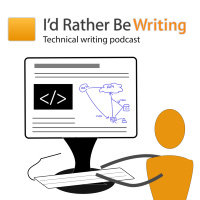
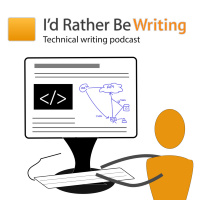
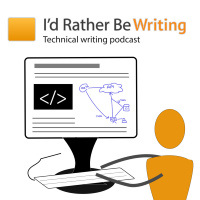
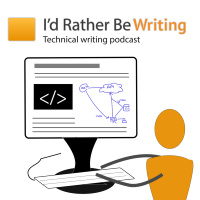
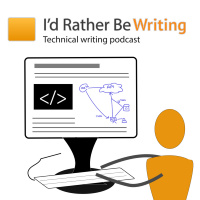

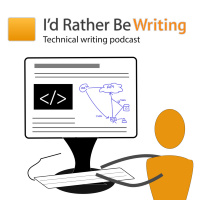
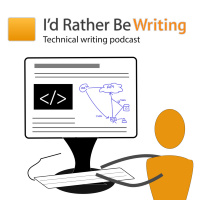
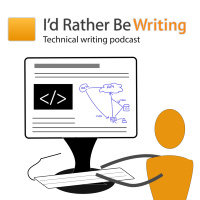
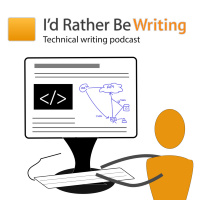
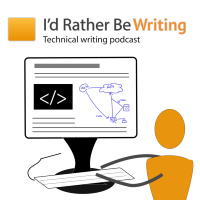

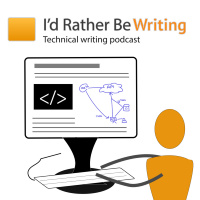
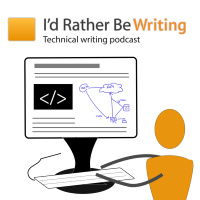
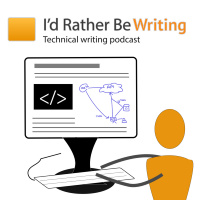
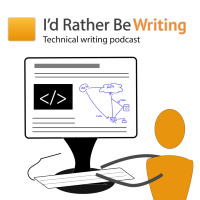

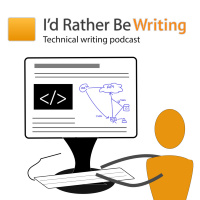
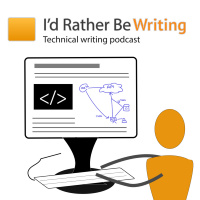
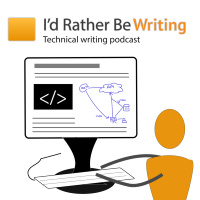


![Bargaining With The Devil: When To Negotiate, When To Fight [abridged]](http://media3.ubook.com/catalog/book-cover-image/478380/200x300/1812131510-bargaining-with-the-devil-when-to-negotiate-when-to-fight-abridged.jpg)

